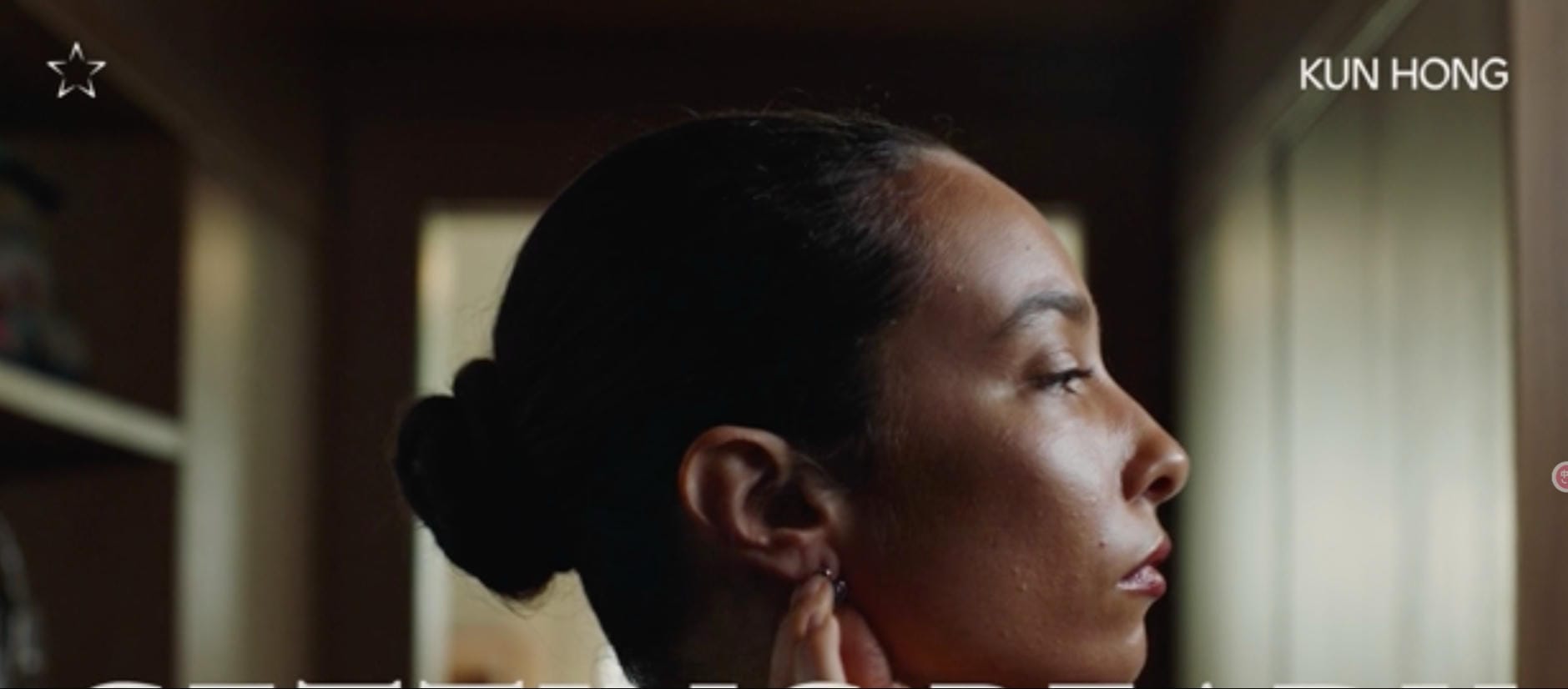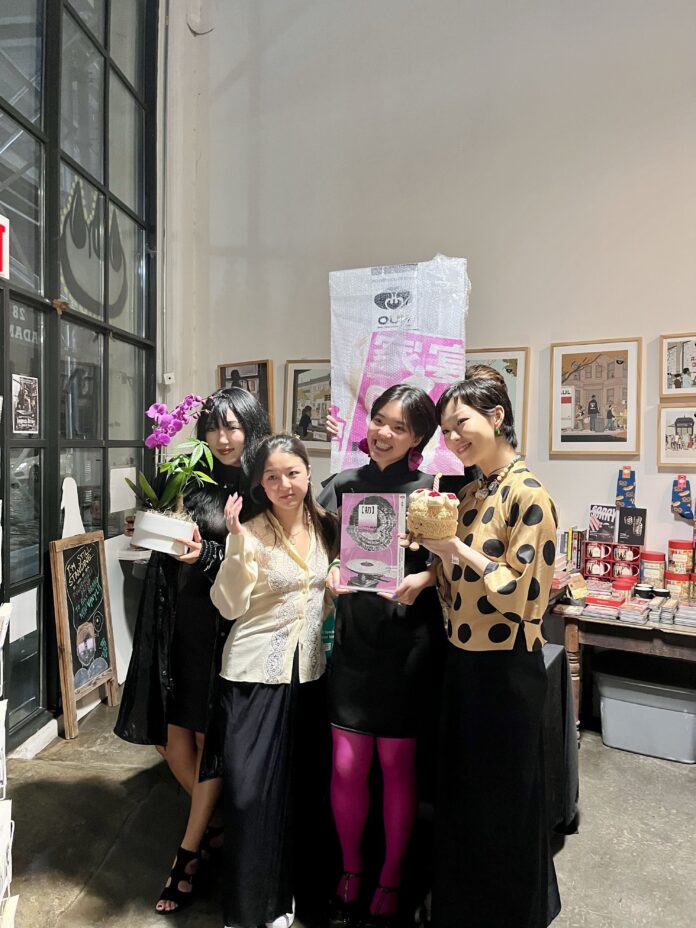Diaspora media has occupied an irreplaceable, if often short-lived, niche in the American media ecosystem, providing not just news from countries of origin but also practical information about housing, employment, and cultural adaptation that mainstream outlets rarely cover with comparable nuance or linguistic accessibility.
By their very nature, diaspora-focused media’s concerns shift with historical and social contexts. Consider The North American Post, founded in 1902 to serve Seattle’s Japanese American community. The newspaper has evolved from supporting families during wartime incarceration in the 1940s to covering today’s anime conventions and cultural festivals. More recently, Mochi Magazine launched in 2008 as a lighthearted publication for Asian American teen girls covering fashion and pop culture. But its content matured alongside its audience—particularly during the 2020 George Floyd protests and 2021 Stop AAPI Hate movement—shifting to address systemic racism and complex identity issues through its Our Voices section and first-person narratives now aimed at Asian American women broadly.

The advent of digital publishing has amplified these transformations, allowing smaller diaspora outlets to bypass traditional gatekeepers, cultivate direct reader relationships, and adapt quickly to their communities’ evolving needs.
Mother Tongue Media LLC (MTM) is an interdisciplinary creative production studio founded in May 2023 with the mission of dismantling tokenism and building equitable platforms for Asian diasporic voices. Established by award-winning producer Lily Huang-Voronina, the studio has quickly expanded from a small content shop into a multi-channel enterprise spanning publishing, video production, brand architecture, and mentorship-driven community initiatives. In today’s oversaturated media landscape, MTM offers a refreshing take on the meaning of online and offline connections and the power that diaspora communities might hold. What began as a small boutique content shop has, in less than two years, expanded into a multi-pronged studio operating at the intersection of culture and commerce.
What sets it apart is its ability to collapse boundaries between authentic storytelling and marketing goals. MTM’s dedication has always been to find commonality across cultures and resonance amongst audiences from all walks of life. Just as the MTM founder Lily Huang-Voronina often puts it, “We make stories feel like home.” Whether through narrative pieces like Ey! Don’t Pick in alliance to the #StopAAPIHate movement or commercial campaigns, MTM thrives in the cultural borderland of storytelling, and tirelessly renders its beauty to a growing audience.
More recently, MTM has harnessed the power of fashion to create a sense of recognition and belonging. The CHUA Bag Launch Campaign F/W 2025, produced with KUN HONG Studio and Queue Agency, centered mother-daughter bonds and Asian American craftsmanship, reframing fashion as a diasporic cultural archive rather than purely a commercial product. In blending culture and commerce, MTM positions itself as a leader in opening new spaces for diaspora narratives.

MTM keeps its cultural backbone firmly in place through Mother Tongue Journal, the literary publishing wing of MTM. Mother Tongue Journal positions itself as an independent space of voice where diasporic artists, writers, and thinkers can present work free from the pressures of token representation. Reflecting on the journal’s founding, Editor-in-Chief Ariel Xinyu Peng has emphasized the importance of “writing beyond Western expectations,” a commitment that extends to editorials exploring identity, displacement, and cultural inheritance. The journal insists on diasporic self-expression in both literary and visual forms, supported by an editorial team grounded equally in collaboration and craft.
In May 2025, Mother Tongue Journal published its debut issue, Ground Zero 初, featuring seven works of nonfiction, literary translation, poetry, and fiction by diasporic authors. Using literature as a space to examine the complexities of diasporic experience is an important mission of MTM. The reception of the journal showed that there was a craving for uncensored, untokenized voices among the Asian diaspora. More than 100 guests attended the journal’s launch party held at the bookstore POWERHOUSE Arena in DUMBO, Brooklyn.
The overwhelming enthusiasm surprised the small team of four at MTM—including Fiction and Poetry Editor Ang Xu and Visual Art Editor Hua Hannah Zhong—who are well aware that literature has long fallen behind other forms of media. “What does it mean to read from a digital magazine that insists on launching in an era where literature almost over-saturates and everyone has a podcast?” Ariel even posed this very question to the guests at the issue launch party. Ariel believes that the birth of Mother Tongue Journal is not only prompt but vital. “There’s never enough content. As I continue to seek resonance, the more I find the closer I get to finding myself.”
Aside from the regular issues, Ariel has also established THE Lounge, the artist interview column by Mother Tongue Journal. The column gives spotlights to diasporic artists in various fields, including entrepreneurs and filmmakers. The idea is in a way a synthesis of Ariel’s publishing career. Prior to becoming Editor-in-Chief of Mother Tongue Journal, Ariel has published in both selective literary magazines as well as broad-circulating newspapers such as Shanghai Daily, for which she wrote articles of cultural commentary. Ariel believes there is common ground between these two media niches.

MTM operates comfortably in the offline world. Unusual for a media company, MTM runs a mentorship-driven community platform, Bloom, which offers guidance, consultation, and capacity-building to diasporic creators. Its bi-monthly programs provide a grassroots infrastructure of support, positioning MTM as a movement-builder for Asian diasporic voices. The initial program of Bloom focuses on the theme of “Networking”, in a self-conscious, tongue-in-cheek fashion. The program satirizes the contemporary demands of constant visibility and personal branding while remaining sympathetic to the very real pressures these expectations place on modern careers.

Mother Tongue Media’s multivalent coverage is remarkable. This adaptability makes MTM not only a media company but also a form of community infrastructure, uniting artists, writers, and creative practitioners from diverse backgrounds into a shared collaborative station. MTM has built an extensive network of collaborators across literature, film, fashion, and visual storytelling. At its heart, Mother Tongue Media is a venture made by and for artists. With this passion, they hope to outlast other diasporic publications that have come and gone. As Ariel explained at the issue launch party: “We want to give diasporic artists a place to shine while also giving ourselves exactly that. And by artists I mean everyone who carries their sense of self, everywhere they go.”

